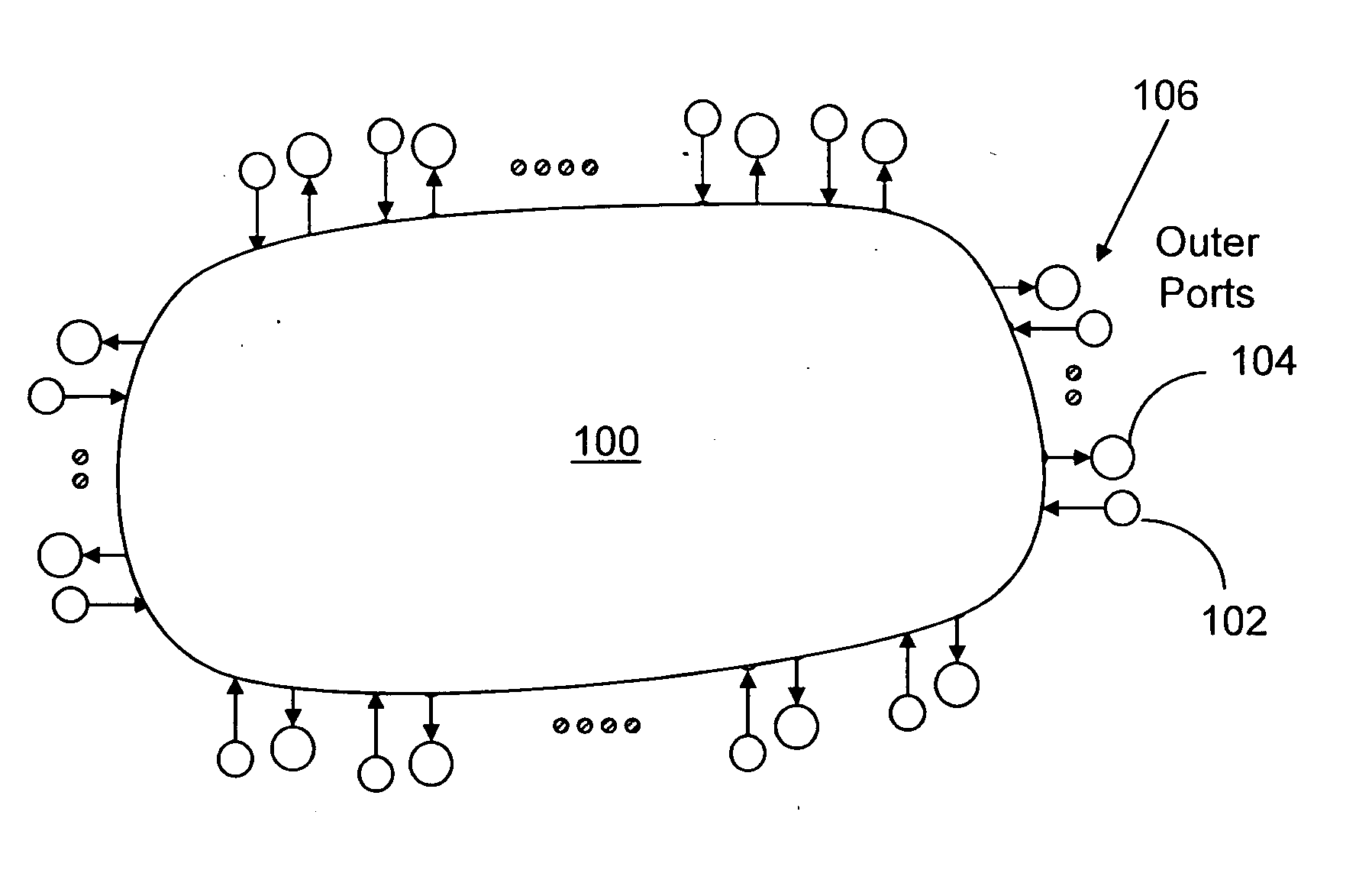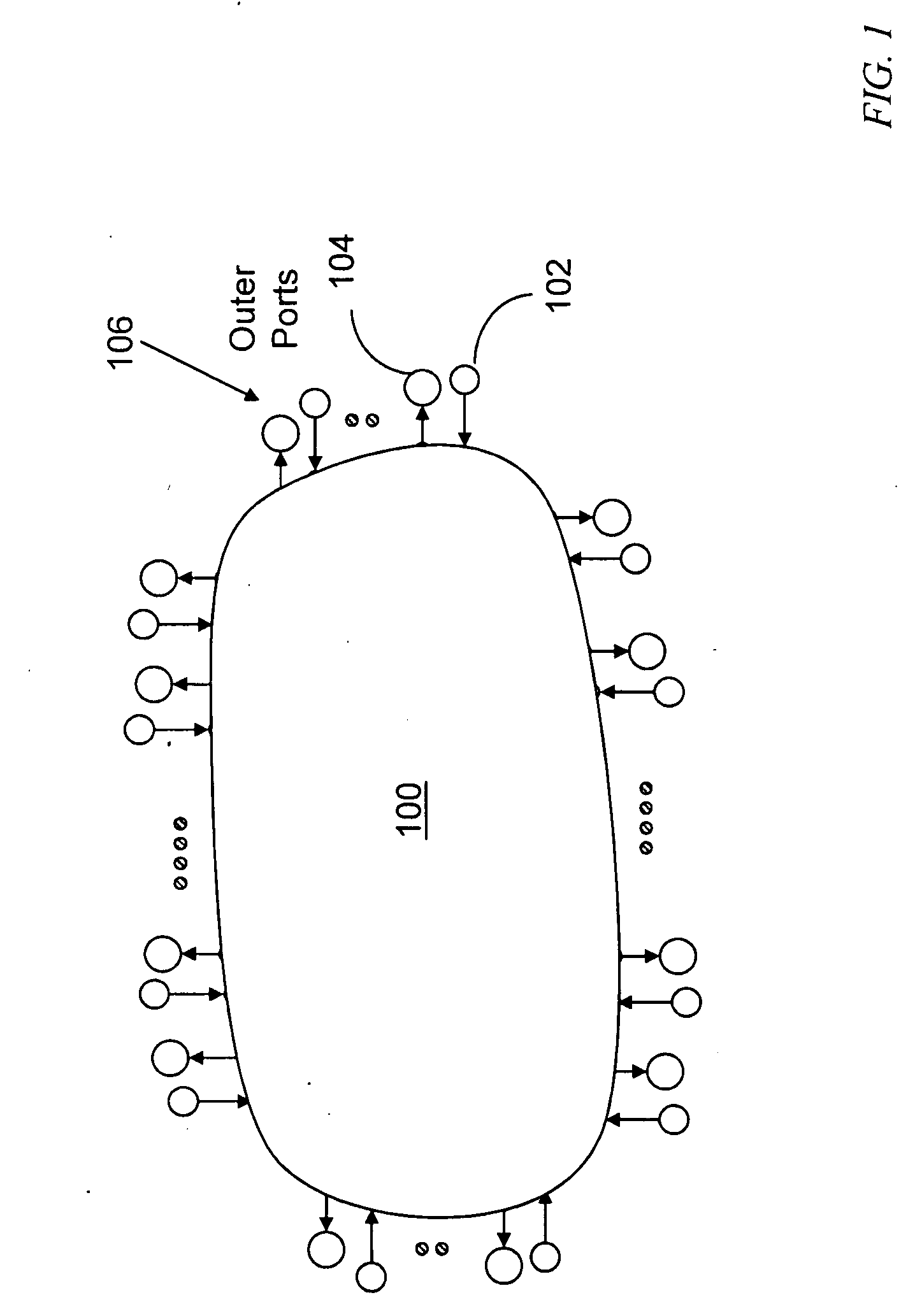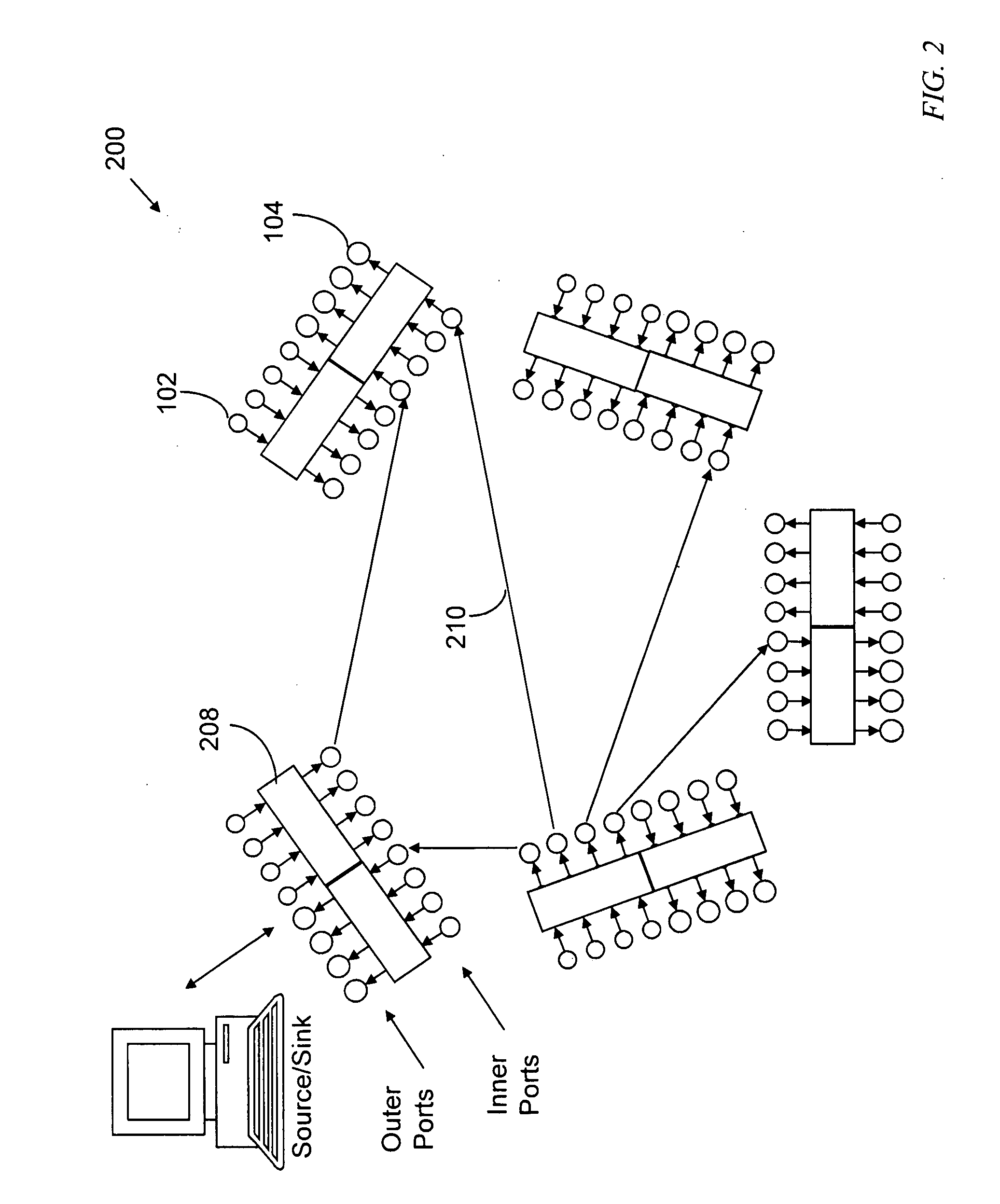Flow-Rate-Regulated Burst Switches
a burst switch and flow rate technology, applied in data switching networks, multiplex communication, digital transmission, etc., can solve the problems of inability to ensure packet network transfer, poor utilization of circuit-switched connection fixed capacity, unsuitable data communication, etc., to achieve high service quality, facilitate switching, and high efficiency
- Summary
- Abstract
- Description
- Claims
- Application Information
AI Technical Summary
Benefits of technology
Problems solved by technology
Method used
Image
Examples
Embodiment Construction
[0051]For ease of reference, the terminology used in describing the embodiments of the invention is listed below.
Edge node: A switching node having subtending information sources and sinks and connecting to other nodes is called an edge node.
Core node: A switching node connecting only to other nodes is called a core node.
Outer port: A port receiving signals from a source, or transmitting signals to, a sink is called an outer port.
Inner port: A port receiving signals from, or transmitting signals to, another node is called an inner port.
Input port: A port of a switching node receiving information signals from either a subtending information source or from an external node is called an input port.
Output port: A port of a switching node transmitting information signals to either a subtending information sink or an external node is called an output port.
Ingress port: An input port receiving information signals from subtending information sources is referenced as an ingress port.
Egress p...
PUM
 Login to View More
Login to View More Abstract
Description
Claims
Application Information
 Login to View More
Login to View More - R&D
- Intellectual Property
- Life Sciences
- Materials
- Tech Scout
- Unparalleled Data Quality
- Higher Quality Content
- 60% Fewer Hallucinations
Browse by: Latest US Patents, China's latest patents, Technical Efficacy Thesaurus, Application Domain, Technology Topic, Popular Technical Reports.
© 2025 PatSnap. All rights reserved.Legal|Privacy policy|Modern Slavery Act Transparency Statement|Sitemap|About US| Contact US: help@patsnap.com



